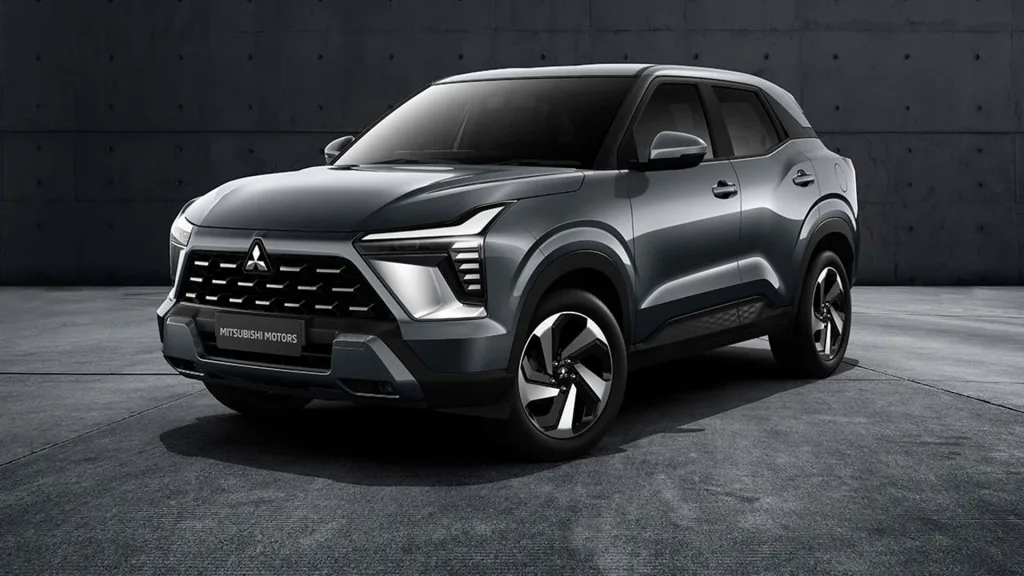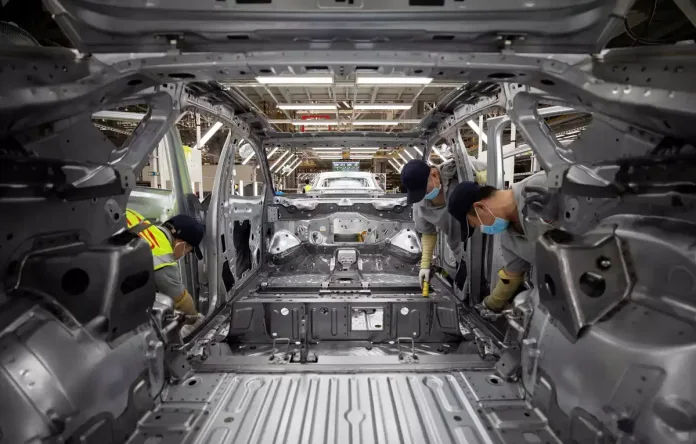In a move that signals a fundamental shift in automotive manufacturing strategies, Mitsubishi Motors has secured an agreement to outsource its electric vehicle production to Taiwan’s Foxconn. This landmark Mitsubishi Foxconn partnership represents not just a business deal, but a potential transformation in how traditional automakers approach the rapidly evolving electric vehicle market.
According to reports from Kyodo news agency, the Japanese automaker plans to have Foxconn, formally known as Hon Hai Precision Industry Co, manufacture electric vehicles initially destined for Australia and New Zealand markets. The new Mitsubishi EV models will be produced by Foxconn in Taiwan, marking a significant shift in the company’s manufacturing strategy.
Inside Mitsubishi EV’s Bold Manufacturing Strategy
This partnership represents Foxconn EV division’s first major automotive client, validating their expansion beyond electronics. For the tech manufacturing giant better known for assembling Apple’s iPhones, this deal marks a crucial milestone in their ambitious journey into the automotive sector.
The Strategic Significance of the Partnership
The automotive industry has watched with interest as Foxconn has steadily built its capabilities in electric vehicle production over recent years. With this agreement, Foxconn electric vehicle manufacturing moves from aspiration to reality, with a respected automotive brand entrusting them with production responsibilities.
For Mitsubishi, the decision reflects the challenging economics of EV manufacturing. By leveraging Foxconn’s renowned manufacturing expertise and economies of scale, Mitsubishi aims to reduce production costs while accelerating their electric vehicle development timeline.
“Electric vehicle outsourcing is becoming increasingly common as automakers seek to reduce costs and accelerate development timelines,” notes industry analyst Maria Chen. “This arrangement allows Mitsubishi to focus on their core strengths in design and marketing while tapping into Foxconn’s manufacturing prowess.”

How Foxconn EV Production Changes the Game
The partnership marks a significant evolution in Foxconn’s automotive ambitions. Since announcing its entry into the EV market in 2020, Foxconn has been steadily building its capabilities through various initiatives:
| Foxconn’s EV Journey | Details |
|---|---|
| 2020 | Announced MIH open platform for EV development |
| 2021 | Unveiled three prototype electric vehicles |
| 2022 | Acquired Lordstown Motors factory in Ohio |
| 2023 | Began production of Fisker PEAR electric vehicle |
| 2025 | Secured Mitsubishi as first major automotive client |
With this deal, Foxconn EV production moves from theoretical to practical, with real vehicles heading to Australia and New Zealand markets. The company’s manufacturing expertise, honed through decades of electronics production, is now being applied to the more complex world of automotive manufacturing.
“Foxconn has been methodically building its EV capabilities for years,” explains automotive industry consultant James Wong. “This partnership with Mitsubishi validates their approach and positions them as a serious player in the EV manufacturing space.”
What This Means for the Automotive Industry
The Mitsubishi Foxconn partnership signals a growing trend of traditional automakers outsourcing EV production to technology companies. This approach allows automakers to:
- Reduce capital expenditure on new EV production facilities
- Accelerate time-to-market for new electric models
- Benefit from the manufacturing expertise of technology companies
- Focus internal resources on vehicle design, brand building, and customer experience
Industry analysts are closely watching how Foxconn electric vehicle production capabilities will compare to traditional automotive manufacturers. The success or failure of this partnership could influence whether other automakers follow Mitsubishi’s lead.
“We’re seeing a fundamental rethinking of the automotive value chain,” says automotive industry strategist Sarah Johnson. “The lines between technology companies and automakers are blurring, and this partnership exemplifies that trend.”
The Future Outlook for Both Companies
For Mitsubishi, this partnership represents a pragmatic approach to the EV transition. Rather than investing heavily in retooling existing factories or building new ones, they’re leveraging Foxconn’s manufacturing capabilities to bring electric vehicles to market more efficiently.
Meanwhile, Foxconn gains a valuable foothold in the automotive industry with a respected brand as their client. This could potentially lead to similar arrangements with other automakers looking to optimize their EV production strategies.
The initial focus on Australia and New Zealand markets suggests a measured approach, allowing both companies to refine their collaboration before potentially expanding to other regions. These markets, while smaller than major automotive markets like China or the United States, offer a valuable testing ground for the partnership.
The Broader Implications for EV Manufacturing
The Mitsubishi-Foxconn deal reflects broader changes reshaping the automotive industry. As electric vehicles require different manufacturing processes and components than traditional internal combustion engine vehicles, we’re seeing new manufacturing models emerge.
Contract manufacturing, long established in the electronics industry, is now finding its place in automotive production. This shift could potentially lower the barriers to entry for new automotive brands, as they could design vehicles without needing to invest in manufacturing infrastructure.
For established automakers like Mitsubishi, partnerships with technology manufacturers offer a way to navigate the capital-intensive transition to electric vehicles. By sharing the investment burden and leveraging specialized expertise, they can potentially bring competitive electric vehicles to market more quickly and cost-effectively.
As the automotive industry continues its electric transformation, we can expect to see more unconventional partnerships and manufacturing arrangements. The Mitsubishi Foxconn EV partnership may well be remembered as an early example of a new paradigm in automotive manufacturing.
Also read- Hero MotoCorp Invests ₹525 Cr in Euler Motors: All Details
FAQS
What exactly is the Mitsubishi Foxconn partnership?
The partnership involves Mitsubishi Motors outsourcing the production of its electric vehicles to Foxconn (Hon Hai Precision Industry Co), with initial production focused on vehicles for the Australia and New Zealand markets.
Why is Mitsubishi outsourcing EV production?
Mitsubishi is likely outsourcing EV production to reduce costs, accelerate development timelines, and leverage Foxconn’s manufacturing expertise without having to invest heavily in retooling existing factories or building new ones specifically for EVs.


